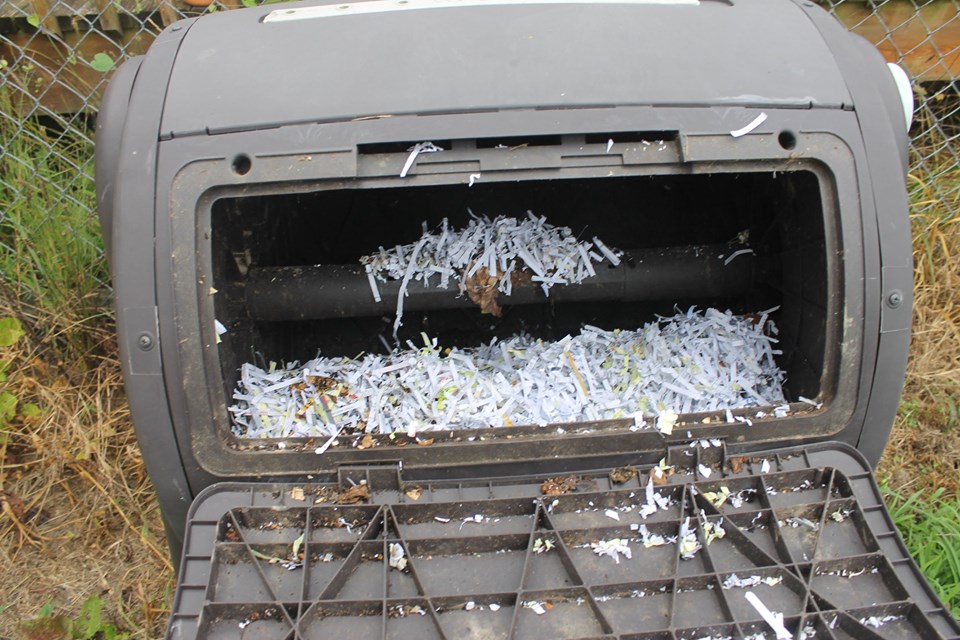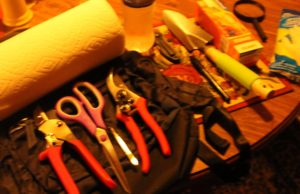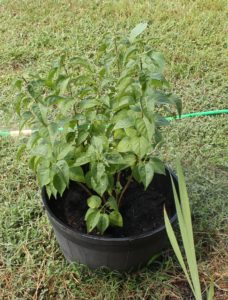Being a writer, I often have a considerable amount of paper that I need to shred for security reasons. This is in addition to the monthly statements for my credit cards and utility bills. All this normally ends up in the trash bin to be taken to the local dump and tossed into a huge hole. Well, I no longer contribute to filling holes at the dump, but rather use my shredded paper to create compost for my garden. In this short lecture I intend to explain to you how I go about this task. It is easy and simple.
Equipment required
Large storage container such as a trash can
Paper Shredder
Compost Tumbler
Pruning Shears
To start the process, you will initially need to collect paper. This can be any sort of paper which you can find. I found it useful to visit the local weekly community newspapers and ask for their old returned copies. They will be more than glad to provide you with their excess papers.
Next, you will need to spend some time shredding the newspapers up to use in the tumbler. Do not use shredded credit cards or any other sort of plastic. Use only paper. Once it is shredded place the finished product in the large trash can.
Now it is necessary to fill the tumbler with the shredded papers. Use 2/3 paper to 1/3 garbage from the kitchen. If you have animals such as sheep, chickens or rabbits feel free to include their poop in the tumbler as well. I would like to stress at this point that I do not recommend the use of dog, cat or human poop in any way. The risk of pathogen diseases is too high.
What you can put into your compost are any sort of organic waste. These components include leaves and grass clipping, manure, non-animal food scraps, dry dog and cat food, dryer lint, old herbs and spices and even old wine. You can do as I did here and include shredded newspaper, pine needles, and wood chips. Avoid berry brambles, large twigs, and animal products such as butter, bones, and meat. Kelp meal has been known to kick start a compost pile to speed up the process. Never use coal ash as it is high in sulfur and iron and will harm your plants. Certain colored papers contain heavy metals and could damage your garden plants. It stands to reason that you should never place diseased Plants into your compost.
Now, every day you must turn the tumbler several turns. This allows the mix inside to become aerated which is important for the compost to develop properly. If left in one position continuously the material inside could be ruined. If you diligently turn the tumbler each day, then within four weeks you will start to see changes taking place. It will take a total of six weeks to as much as six months before you have compost available.
The last thing you need to do it use your new compost in your garden. If some of it has not completely turned to compost you can use it anyway and it will finish turning in the garden. Your compost when done properly should have no smell at all. If you find that the compost appears to be too dry then add more garbage to it. On the other hand, if it is too wet you can add additional paper to the mix. Keep in mind that if you add more to the compost it will take it longer to complete its cycle.
My last remark here is that should you discover that your compost is a bit on the heavy side consider adding some gypsum mix to it. Just mix it into the compost and let it sit for a few days.
As you can see from the photo the shredded paper is in the tumbler and each day Pam will take a gallon of garbage and deposit it in also. At some point we will need to stop since each time we add more garbage or paper the cycle starts all over. I am currently working on an alternative method for composting, which I will report on at the proper time.




